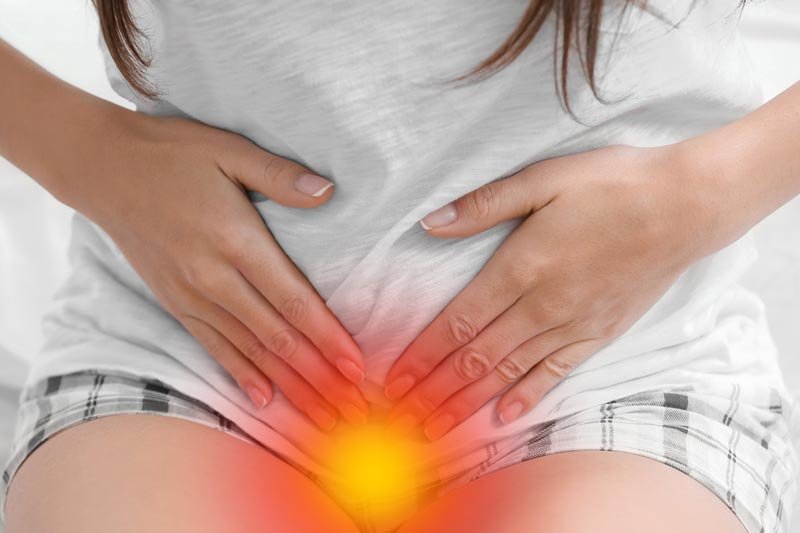Cause of Vaginal Dryness and What You Can Do About It : Many women experience vaginal dryness at some point in their lives. It is most common during and after menopause, but it can happen to women of any age for varying reasons. Usually, the walls of the vagina are lubricated with a clear fluid. Estrogen helps to maintain that thin layer of moisture while keeping the vaginal lining thick and elastic.
When your estrogen levels decline, so does the amount of moisture in the vagina. This can make you uncomfortable and have a significant impact on your sex life. Vaginal dryness also makes it easier for infections to occur. The good news is that there are a number of treatments available and you can get some over the counter while your doctor must prescribe others.
Symptoms of Vaginal Dryness
- You may be suffering from vaginal dryness if you:
- Experience discomfort or pain during sex
- Experience soreness or an itch in and around your vagina
- Need to urinate more often than usual
- Suffer from recurring urinary tract infections
Causes of Vaginal Dryness
As noted before, menopause is not the only reason you may experience a reduction in vaginal moisture. It may also be due to:
- Breastfeeding
- Contraceptive pills or antidepressants
- Hysterectomy
- Cancer treatments such as chemotherapy
Each of these can cause a change in your estrogen levels. Vaginal dryness may also occur if you:
- Aren’t sufficiently aroused before and during sex
- Use perfumed products like douches and soaps in and around your vagina
- Have a condition, such as diabetes or Sjögren’s syndrome. The latter is an autoimmune disorder which attacks the body’s moisture-producing cells.
Things You Can Try to Relieve Dryness and When You Should See A Doctor
There are a number of remedies you can try before you go to see your doctor. For example, you can use water-based lubricants when you have sex or try vaginal moisturizers to make you more comfortable. Switching to unscented soaps and washes may also help. In addition, incorporating more foreplay into your sexual encounters can increase arousal and create more lubrication. Finally, since underwear made from synthetic materials can make irritation worse, you should wear cotton panties which allow for better airflow.
If you try these suggestions for a few weeks and you don’t get any relief, it’s time to see a doctor. You should also seek medical attention if vaginal dryness is affecting your everyday life or it’s accompanied by bleeding after sex or unusual vaginal discharge.
Your doctor will likely give you a pelvic exam and check your vagina for any thinning of the walls or redness. The exam will indicate if you have a urinary tract infection or vaginal infection which could be causing your symptoms. The doctor may also take cells from your cervix or vaginal wall for a Pap test.
Treatments Your Doctor May Recommend
If your vaginal dryness is due to low estrogen levels, the most common treatment is topical estrogen therapy. This helps to replace some of the hormones which your body isn’t making. This should improve your symptoms without giving you as much estrogen as you would get from pills.
You will likely get your estrogen in one of three ways:
- A ring – This is a flexible ring which is inserted into the vagina. It releases a steady stream of estrogen hormone to the tissues and it is replaced every three months.
- A tablet – This is placed in the vagina once every day for two weeks using a disposable applicator. After the two-week period, it is used twice a week until you don’t need it anymore.
- A cream – This is usually applied inside the vagina daily for one to two weeks then reduced to one to three times weekly.
If you don’t need additional estrogen, your doctor may recommend that you buy glycerin-min oil-polycarbophil or another moisturizer. Another option is ospemifeme. Also known as Osphena, this is an oral medication which thickens the vaginal tissue and makes it less fragile. This can make sex less painful. However, it should be noted that the US Food and Drug Administration warns that Osphena can thicken the uterine lining and increase the risk of blood clots and stroke.
If you’re struggling with reduced moisture and lubrication, rest assured that you’re not alone. While it is uncomfortable, vaginal dryness isn’t linked to any serious health problems. However, you should still seek medical attention. You may feel a little uncomfortable when you go to the doctor but there’s no need to be embarrassed. Doctors deal with these types of personal issues all the time and they only want to help you get better. The doctor will listen to your symptoms, examine you, and help you figure out what’s wrong. Together, you’re likely to find a remedy which works for you so there’s no need to be overly worried.
Author:
Dani Fogel is a Communication Coordinator at Brandable, based in Los Angeles, CA. She works on the Queen V brand within the company’s Digital and Ecommerce department.
Related Videos about Cause of Vaginal Dryness and What You Can Do About It :
Vaginal Dryness – Mayo Clinic Women’s Health Clinic
Treatments for vaginal dryness – ADC
Causes of Vaginal Dryness
The Basics: Vaginal Dryness | WebMD
Vaginal Dryness: What You Should Know
Women’s Health : Treating Vaginal Dryness
Vaginal Dryness and how to overcome it.
Vaginal Dryness- Cause. Prevention. Diet.
Related Infographics about Cause of Vaginal Dryness and What You Can Do About It :
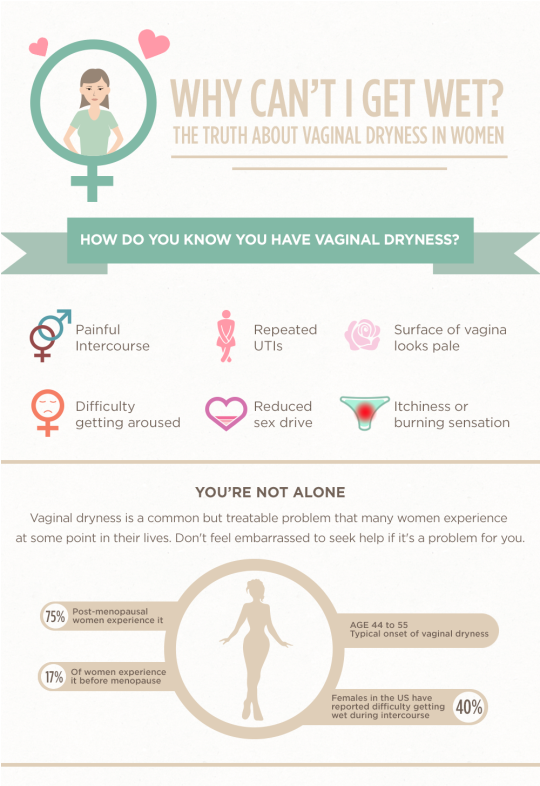
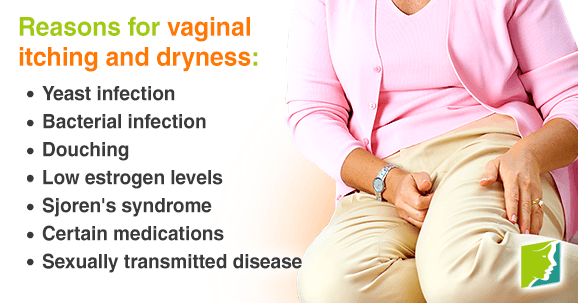
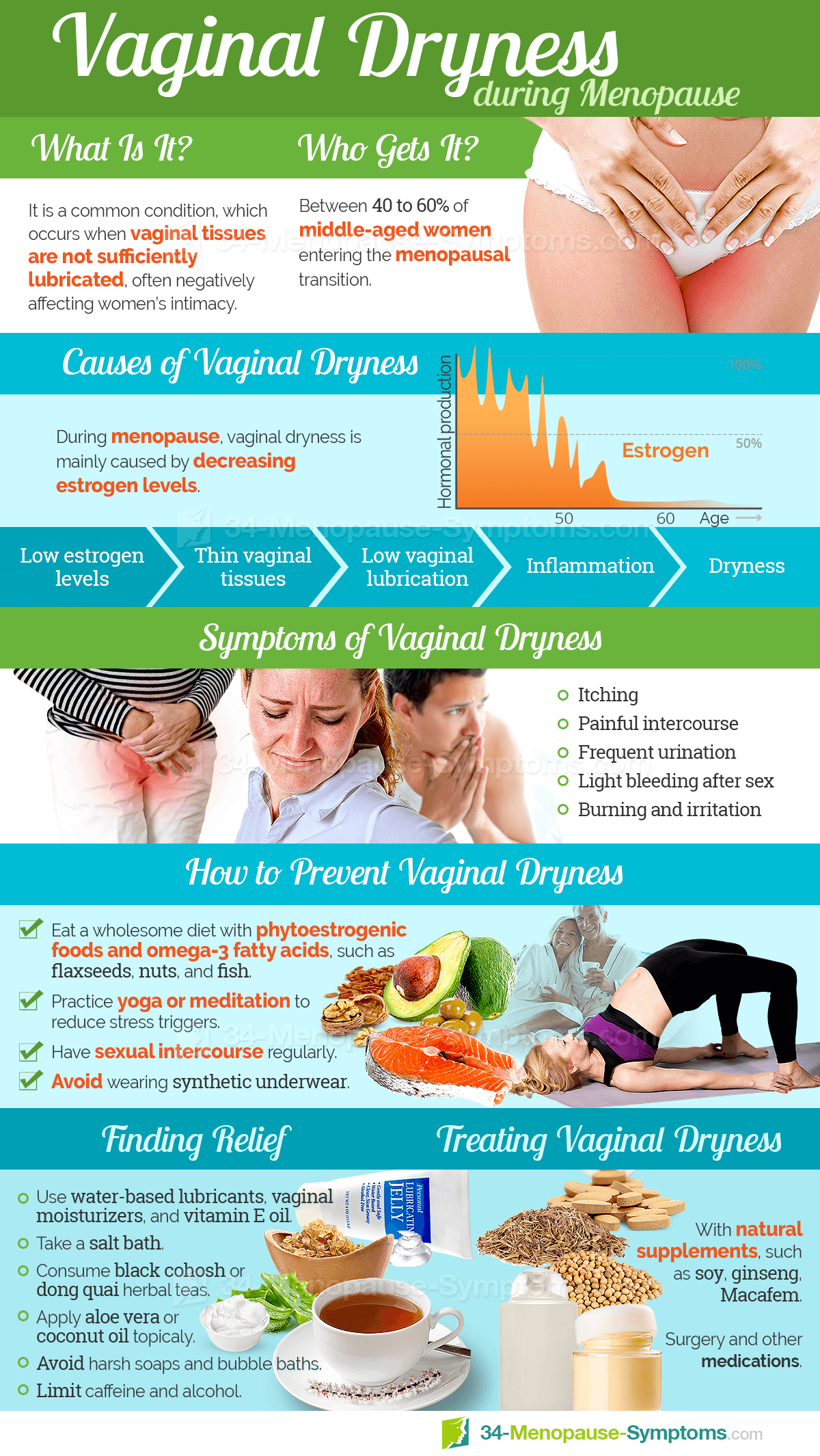
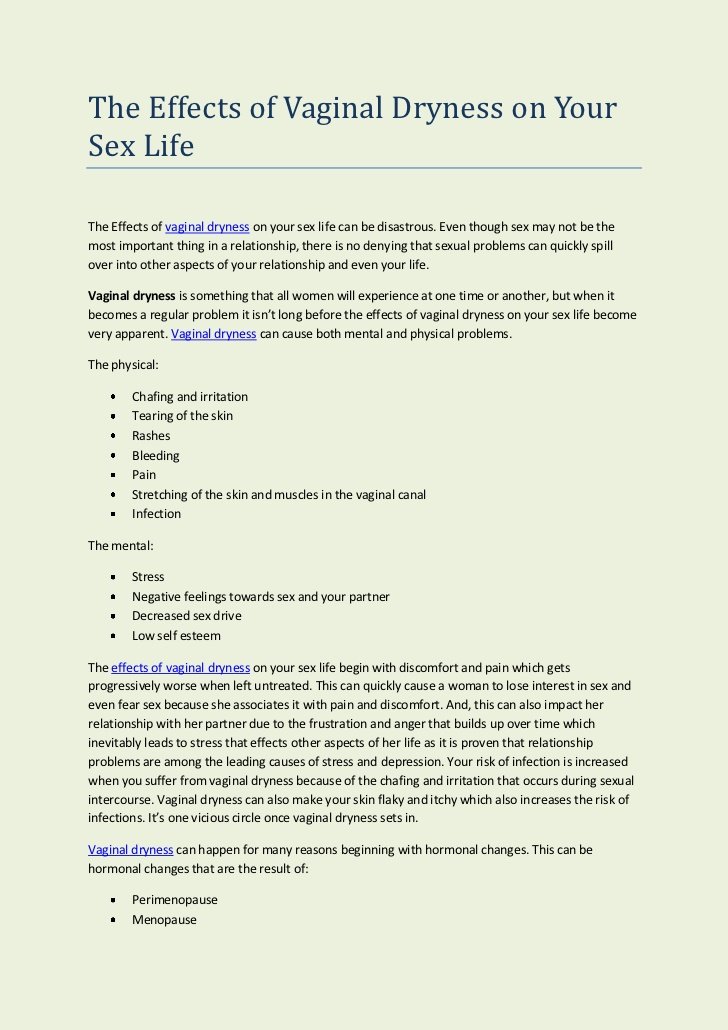
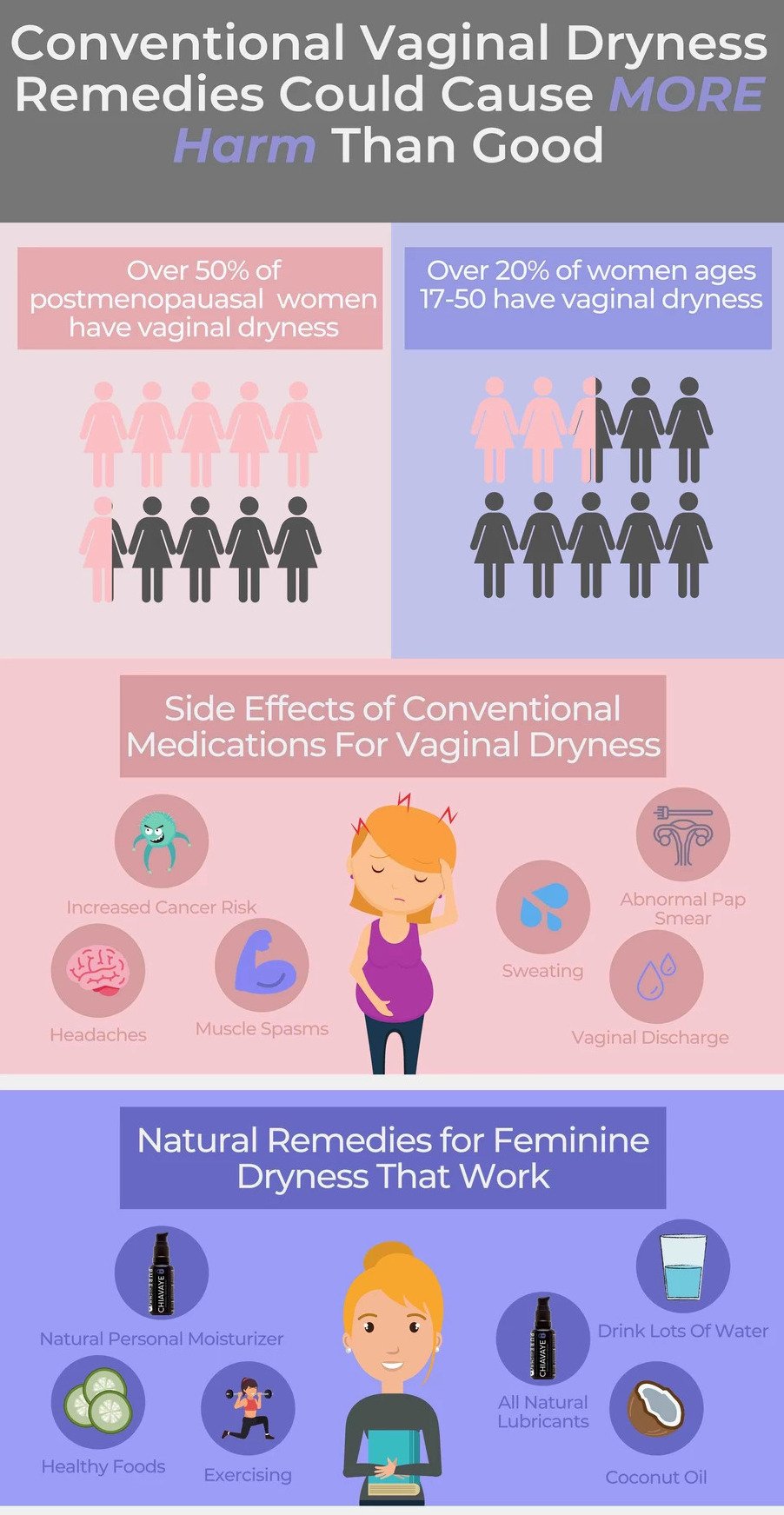
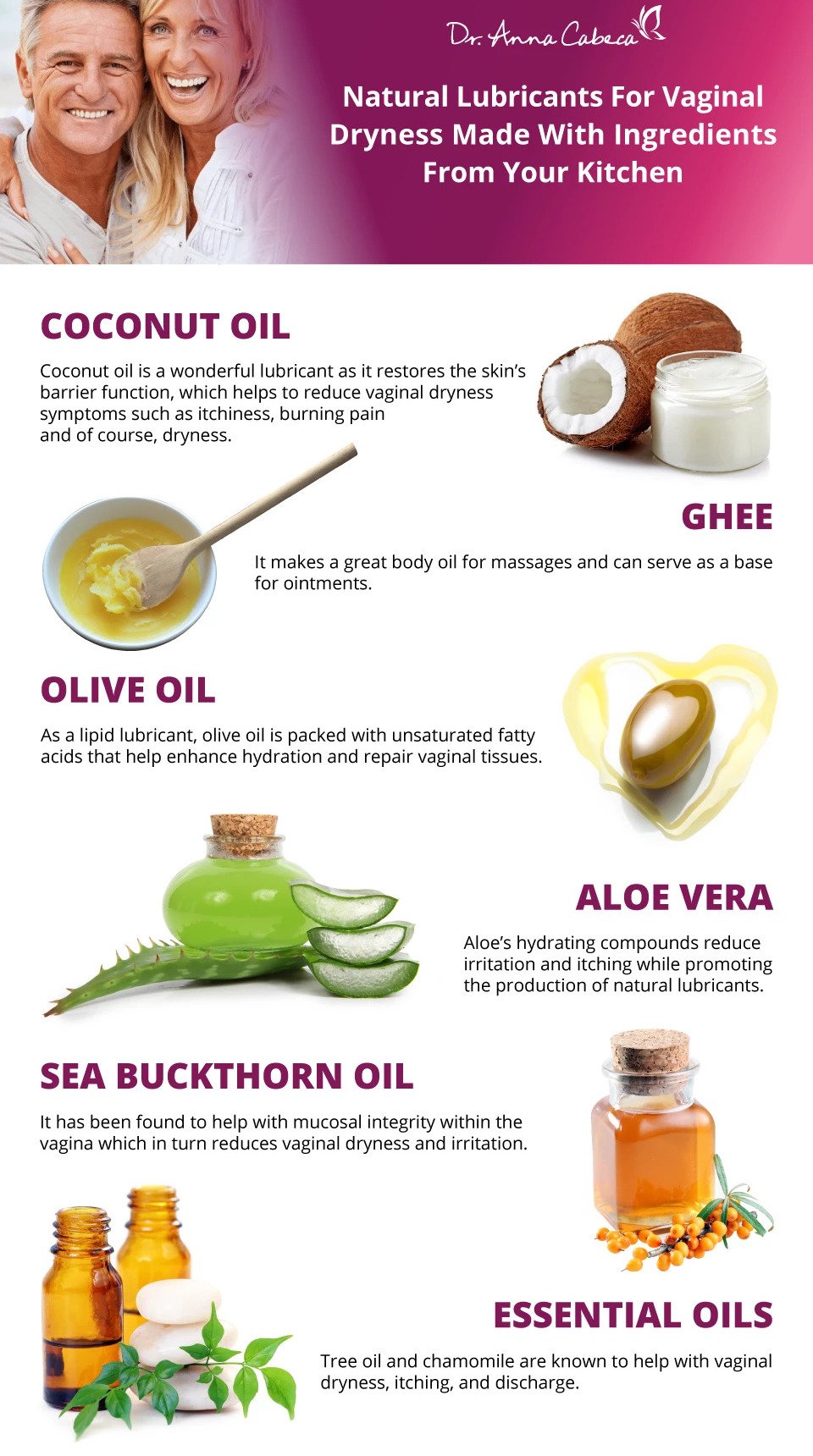
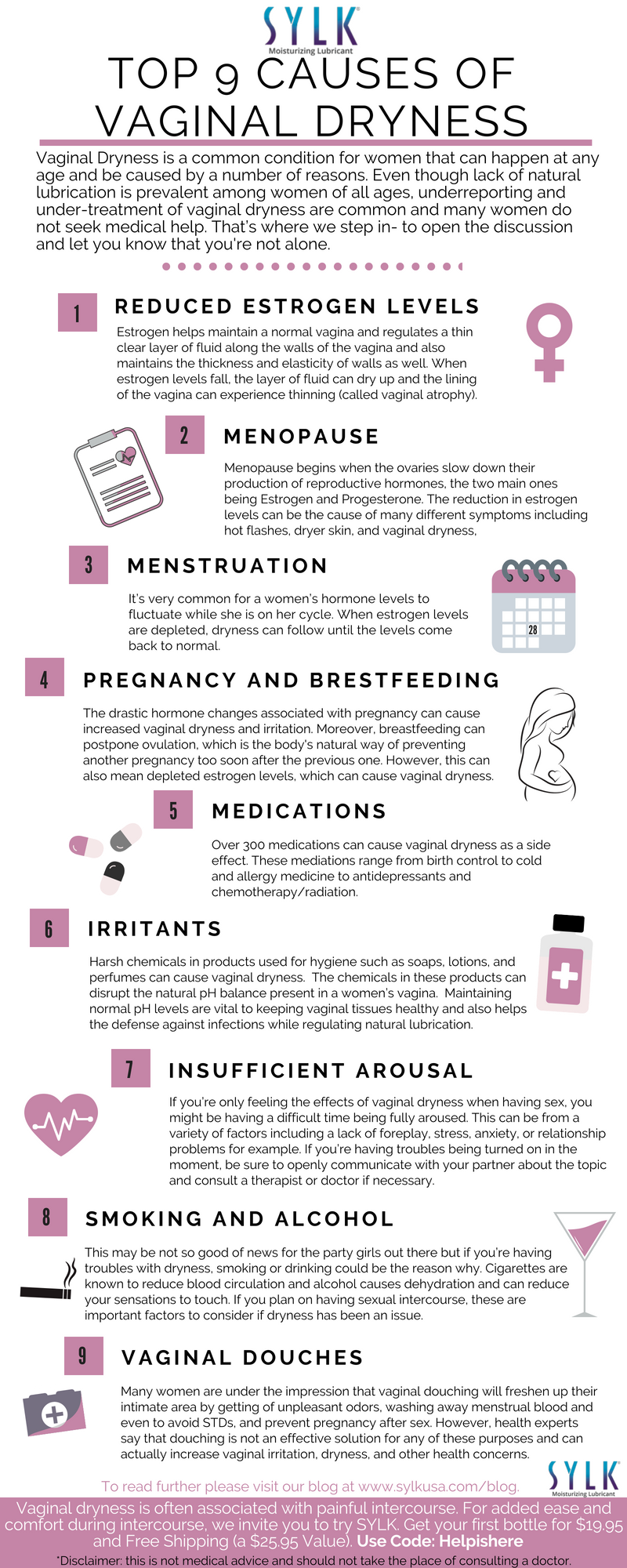
Cause of Vaginal Dryness and What You Can Do About It
female dryness cure, feminine dryness remedies, why am i dry down there all of a sudden, menopause dryness natural remedies, best lubricant for menopause dryness, does a girl get dry after she comes, why am i so tight and dry, home remedy lubrication,




